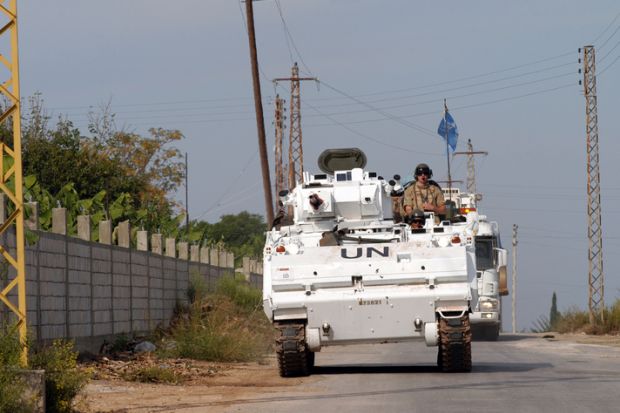Academic experts on conflict and state-building today face an exceptionally challenging environment in an era of rising international tensions.
This was a central theme of the Conflict Research Society annual conference, held last week at the University of Sussex, on “Rethinking Conflict Research in a Post-Liberal World”.
During the Cold War, argued a paper by CRS chair Hugh Miall, emeritus professor of international relations at the University of Kent, peace researchers were well aware “there was little hope that policymakers would take notice of their recommendations”, so they developed methods for “promoting conflict resolution and peacebuilding that could be tested in local situations and carried forward into diplomatic settings”.
Although things had got better for researchers after 1989, Professor Miall went on, it was now once again “difficult for peace researchers to bring influence to bear on populist and nationalist decision-maker…The ‘peace from below’ strategy merits consideration again…[A] new turn in peace research, towards studying the extent of positive peace in relationships, and the means to transform relationships in a positively peaceful direction, could enhance and reinvigorate existing research traditions and make them more relevant to the turbulent environment we face.”
Other speakers explored the difficulties for Western researchers in understanding the complexities of conditions in conflict zones and the dangers of proposing “solutions” that ignored local realities.
A keynote presentation by Funmi Olonisakin, professor of security, leadership and development – and vice-principal (international) – at King’s College London, made the case for “shifting attention toward examining the organic processes of peace through an interrogation of intra-elite and elite-society conversation in Africa, rather than a narrow focus on top-down institution building”.
She pointed, for example, to a big data project that she had carried out with funding from the Carnegie Foundation to “investigat[e] the concept of peace among a future generation of leaders” in Africa, where they had now “gathered about 1 billion tweets using Twitter and other ethical data-scraping techniques”.
Similar issues were raised in another keynote presentation by Christine Cheng, senior lecturer in international relations at King’s College London, exploring “Extralegal groups in post-conflict Liberia”.
There were real dangers, she told Times Higher Education, in “trying to plonk a model that works for our societies on to societies that are quite different, have extremely weak capacities, that have just fought wars and often have deep levels of distrust”. Researchers needed to think far more about “things at the most basic level: the incentives of people coming out of war, what they do and how we treat them”.
Yet Dr Cheng also acknowledged the difficulties in getting an accurate sense of views “on the ground”.
She first visited Liberia in 2005, she said, when things were “still very uncertain” in the aftermath of the civil war and “it was difficult to go to places without your own driver”, so she had generally travelled around with non-governmental organisations or the United Nations. Though this made sense in terms of security, it could also distort the interview process: “You are sometimes travelling in with a set of people who are armed, with all the difficulties that imposes on the conversation you are about to have. How is anyone going to take your neutrality seriously when you come in with all guns blazing?”




